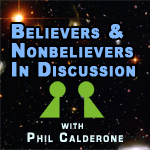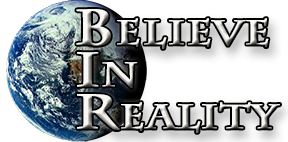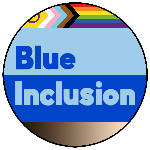To prejudge other men’s notions before we have looked into them is not to show their darkness but to put out our own eye. -John LockeThough there is more to be learned on the personality differences between liberals and conservatives, I have reached a point where behavior patterns are recognizable. A good deal of this comes from completing Thomas Sowell’s book, “A Conflict of Visions.” His insight will not be the whole story but he has gotten the closest of any author so far to understanding our differences.* Combine that knowledge with what is coalescing in social psychology—that our opinions are first intuitive then supported by self-directed reasoning—and we have the basis for a paradigm shift in how to view the opinions of ourselves and others. In particular we are finding that our evaluations typically stop at a point of conclusion that matches our initial intuition, a snap judgment reinforced by rationalization and bias, yielding an endpoint that is often factually incorrect. Our considerations stop when we are able to justify a conclusion (to ourselves and others) rather than a point where we are likely to have reached the truth. We do this unconsciously. A third variable, yet undetermined in my mind, is whether directed reasoning is something we all do dominantly, or if it varies in degree according to our personality type. Based on voting registration in the United States roughly 30% are democrat (presumably liberal), 30% republican (presumably conservative, and 40% independent (presumably mixed opinion). Without getting deep into these numbers this shows that we are a mixed society. We know too that progressives and conservatives exist in every society in every country though because of the challenge of doing inter-cultural polls, it is almost impossible to know the actual numbers. These personalities exist everywhere—indeed coexist—and history tells us they have existed for as long as man has recorded his thoughts. In the United States the difference is demonstrated by The Federalist Papers and The Antifederalist Papers (1787), arguing contrary positions on accepting the proposed US constitution; in ancient Greece, philosophers similarly debated what form of life and government would be best for all. For the purpose of this article, it does not matter where these personality differences come from. If you are religious, you believe that we are made as God intended, going through life according to His plan, unknown and unknowable to us. If you are scientific, the source is an end-product of evolution to date. Either way we can assume that collectively we are at a steady state mixture of progressives, conservatives, and otherwise. Like it or not, this is the way we are. You may believe that your position is correct, the one to be promoted and evangelized with the intention of converting everyone to your side, but in fact we are exactly at the mixture we should be. Does this strike you as purposeless? Why bother try to change minds when we are predestined by God or biology to exist in this balance? No, because we don’t know is how this balance has been achieved. Is it from a steady stream of compromise or wide pendulum swings of contrasting styles of governance? Are we doomed to eternally struggle between worldviews by alternating rounds of competitive genocide? I wish I knew. Perhaps someone out there has knowledge of study in this arena; please share! Historically we know that human culture has evolved to become less violent in total. Despite the daily horrors we hear about, overall conflict worldwide has been decreasing over the past centuries. Appearance to the contrary is largely the result of us being exposed to pervasive news of the bad stuff, something we are predisposed to notice more than the good—an evolutionary survival trait. What worries me now is that we have moved into an arena that is historically unprecedented—the era of widespread, worldwide access to information. It will be interesting to look back after two hundred years but right now we don’t know how this will affect our steady-state balance. Will this availability of information expose and degrade misinformation? Will the existence of supporting information for any position cause people to isolate themselves into belief-bubble groups that compete for existence by ever-aggressive means? We see examples of both of these measures punctuated by extremist individuals, authoritarian governments and religious (especially cultish) groups who try to restrict their populations from access to outside information, whether by direct physical means (country-specific internets), by pressured misinformation and by punishment. Since this availability of worldwide information, it has never been such a large factor in affecting our balance of opinions, our decisions of what is right and wrong. Certainly some data exist from the origin days of language, writing, the printing press, radio and television, but none of those ever were on the scale we see today. Of particular concern is the vehemency of the camps—the demonizing of each other, the vitriol that pervades online comments, the dismissiveness of other’s intentions, the reinforcing of one’s opinion whether true or not. What is to come next—word fights turning into fist fights, a slow and steady acclimation to increasingly violent methods of expression and imposed compliance with one’s opinion? People in left-wing and right-wing media frequently refer to each other as idiots, unintelligent buffoons and zealots. People unfriend each other on Facebook and move into like-minded communities to “get away from those nuts.” Leaders in some countries implement policies that limit speech, restrict media, jail opponents and influence elections. Extremists in some societies practice genocide as an acceptable method of cultural or power-based purification. What can we do as individuals? First of all, realize that no ideology is right for all. Every attempt to impose a single method has failed at one time or another—feudalism, communism, capitalism, rationalism, socialism, totalitarianism, anarchism, etc. Ayn Rand, in her novel, “Atlas Shrugged,” presents a subculture where all people of a certain type—those inherently selfish—choose to live together, believing that the competiveness among them will yield a balanced society of happy, successful people. Even if one accepts such a final resolution, it is a complete fantasy simply because no such homogeneous mixture of people will ever exist. God or evolution sees to that. Accepting that heterogeneity is our way of being, two options lie ahead. One, the path we appear to be on now, we gather into ever-extreme positions and watch the casualties rise as we fight a succession of winner-take-all battles. Two, we acknowledge our differences and our right to coexist, continue to advocate for our positions, and develop cultural boundaries for what is acceptable in obtaining our goals. Either way, we will ultimately achieve the next steady-state balance in our personality mix, assuming we don’t kill ourselves on the road. I encourage you to strive to understand the other side. Also become aware of your own biases. We are all guilty of hypocrisy to some degree. I am not asking any side to give up their principles or routinely compromise positions. In truth there will be times when we must compromise and times when a best resolution rests near one extreme. What is absolutely clear however, is that we need all sides to participate in the process. We need to allow each other to express freely and safely. We need to condemn imposition by non-representation or forced-persuasion, whether it occurs on a government scale, a corporate scale, a tribal scale, or a religious scale. We need elected representatives to converse and debate vigorously, and remove the incentives (wealth and special interest power) that make reelection more important than governance. We need to develop ways to encourage, perhaps even mandate (realistically) the responsibility of every adult to vote—this paired with mixed-partisan education of all citizens on social basics (history, economics, etc) and election specifics. Finally, we need to encourage moral and ethical codes that remove mankind’s ability to impose ultimate punishments on the basis of opinion. This we need to do worldwide, as a shared responsibility, with an updated definition of civilized behavior. *I will write a review of Sowell’s “A Conflict of Visions” at some point but first want to reread it. I bookmark important passages when reading, even in audio version, and this book ended up with so many marks it deserves a more comprehensive look.

BNB19 Riverside Interfaith Council meets Inland Empire Atheists and Agnostics
The Riverside Interfaith Council meets with the Inland Empire Atheists and Agnostics for a friendly, ear-opening conversation at a local coffee house. (This post under


